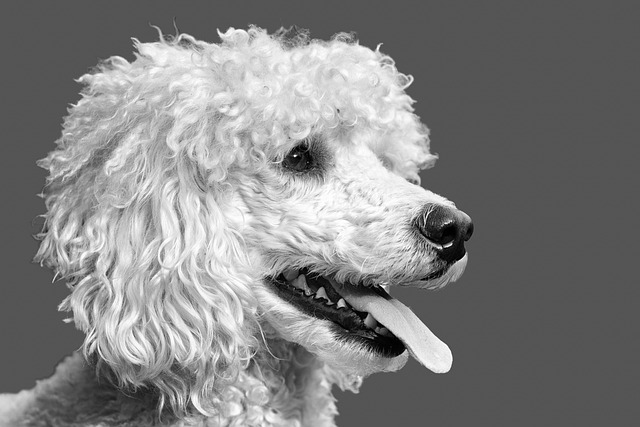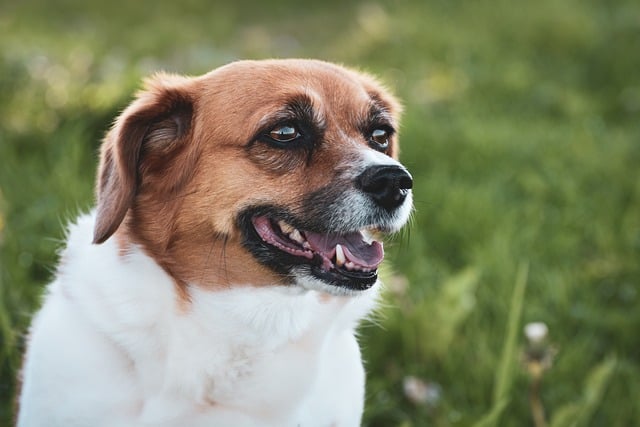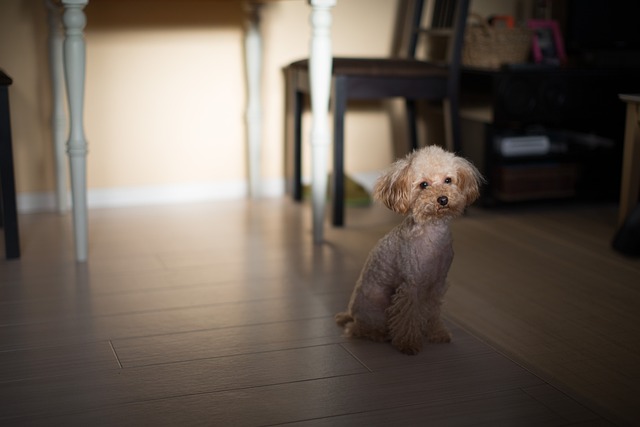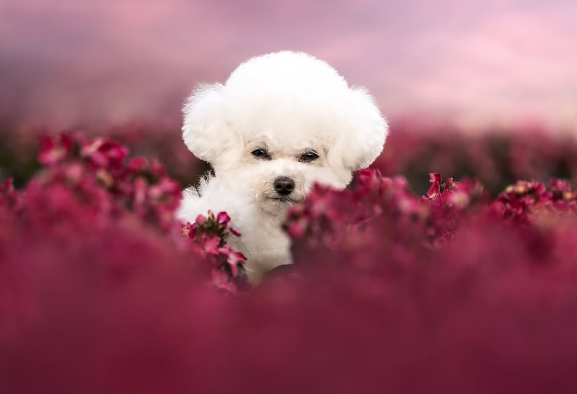A miniature poodle stud dog is a mini poodle chosen to breed with female mini poodles. He was selected for his strong attributes and healthy bloodline. Studs assist in producing quality puppies with even temperaments, intelligent minds, and non-shedding coats.
During breeding, choosing a stud that does not carry negative genetic traits and has a docile temperament ensures that the puppies are born healthy and socialized. Mini poodle studs provide genetic variety to litters, which reduces the risk of health issues. Selecting a stud isn’t all about appearance but soundness, amiable temperament, and documented lineage.
Here’s our complete guide to mini poodle studs and what you need to know. It’s packed with practical advice on health checks, breed standards, and tips to help you choose the perfect match. Discover what you need to know first to make your breeding endeavor a success!
What Is a Miniature Poodle?

Miniature poodles are small dogs with big brains, a low-shedding soft coat, and an outgoing love-everyone attitude. Typically these little poodles weigh between 10 and 15 pounds and are 10 to 15 inches tall at the shoulder. This, along with their smaller stature, makes them an adaptable option for city living and dwellings of all sizes.
Both social and eager to please, miniature poodles make excellent family pets or companions for young adults. It’s no wonder so many allergy sufferers turn to these friendly, lovable pups—their coats are hypoallergenic! These hypoallergenic coats trap dander and shed significantly less than other breeds’ coats.
Beyond the Fluffy Coat
Miniature poodles have profuse, curly, dense coats with a texture that can vary from soft waves to tight curls. Grooming is essential—a professional groom every four to six weeks prevents matting and ensures coat quality. Coat color comes in a variety, such as white, black, apricot, and gray.
Each hue can help inform breeding choices for individuals wishing to achieve specific appearances. Daily brushing keeps their curls bouncy, but it’s the texture of their coat that determines their ultimate appearance—some appear more fluffy, others more scraggly.
Smart, Playful, and Loyal
These poodles are known for their smarts. They’re eager learners, picking up new commands with minimal hassle and flourishing in obedience school. Their intelligent and playful nature makes them ideal companions for children and adults.
Miniature poodles form very strong attachments to their humans and can become velcro dogs. This loyalty makes them excel in canine sports but they may become anxious if left alone for extended periods of time.
Size and Appearance Standards
Standardization of the breed demands an overall square build, straight back, and long, chiseled neck. Responsible breeding listens intently to these appearances, as it prevents health problems from arising and keeps lines pure.
When judging studs, healthy eyes, proper movement and a strong structure are the top considerations.
A Peek into Poodle History
Early poodles, including the miniature poodle, served as water retrievers throughout Europe. The distinct breed resulted from selective breeding of larger poodle variations, down-sizing them for domestic life and exhibition. Through the centuries, these playful dogs gained a reputation for their work, beauty, and elegance.
The Ideal Miniature Poodle Stud

Choosing the ideal miniature poodle stud requires more than just a pretty face or personality. Healthy and social dogs are essential, especially for novice dog owners. Breeders benefit when their purebred poodles exhibit ideal characteristics—such as those seen at Westminster—both in physical health and temperament, necessitating testing for health, genetics, and appearance before committing to any breeding process.
1. Proven Health and Genetic Clarity
A robust health history is the foundation of any thriving stud. This is especially true for genetic diseases that plague miniature poodles, such as Progressive Retinal Atrophy (PRA), Degenerative Myelopathy (DM), hip dysplasia, and Addison’s disease. Additionally, a quality stud should have current health check-ups and DNA testing for these risks.
It’s very wise to request health records and check if the dog’s pedigree indicates any previous issues. Steer clear of any studs who have sired puppies with known severe or incurable disorders, particularly if they don’t have a DNA test.
2. Rock-Solid Temperament is Key
A stud’s temperament is often reflected in his puppies. Ultimately, the best studs are those that are loyal, playful, and enjoyable to be around—so qualities such as friendliness and energy are important. From the start, socialization and early training go a long way in developing the kind of calm, confident dog you want.
Get to know the stud. Make sure you spend enough time with the stud to gauge how he behaves around other people and dogs.
3. Conformation to Breed Standards
Conformation refers to how well a dog adheres to their breed’s standard appearance and structure. For miniature poodles, this means a proud posture, smart eyes, medium size (14-16 inches tall, 7-12 kg), and a well-groomed coat. Fulfilling these standards is important both in the show ring and to ensure the puppies, or little babies, maintain the original poodle look and excellent temperament.
4. Understanding Pedigree Significance
An obvious pedigree from a responsible breeder, with known strong family lines, decreases the likelihood of inbreeding and ensures the integrity of purebred poodle genetics.
5. Fertility and Breeding Viability
A well-behaved, healthy, mature stud, whether a male dog or a purebred poodle, will be able to breed successfully. Age, nutrition, and regular veterinary care are important for responsible breeders to ensure a successful breeding process.
Health Screening: Non-Negotiable

For responsible breeders of miniature poodle studs, health screening is not just a good idea—it’s non-negotiable. Each stud dog requires a clean health screening before being considered for breeding. This practice helps maintain the breed standard and ensures that puppies, or little babies, are born with the greatest chance of having a long, healthy life.
Essential Genetic Tests for Minis
Without a doubt, miniature poodles are susceptible to many inherited diseases. PRA (progressive retinal atrophy), von Willebrand’s disease, degenerative myelopathy – These tests are essential.
Diagnostic tests identify silent carriers. It is essential that breeders know the genetic status of a stud so they do not inadvertently pair two carriers and increase the occurrence of inherited issues. Your vet should be able to provide a simple cheek swab or blood test to check for these conditions.
Breeders need to be using licensed vets or trusted labs for this work every time.
Common Poodle Health Issues
Miniature poodles are predisposed to patellar luxation, hip dysplasia, epilepsy and eye diseases including cataracts. Symptoms may be very subtle—stiffness, limping, cloudy eyes, changes in behavior.
Routine early vet visits identify these problems before they escalate. When responsible breeders don’t use dogs with known health issues for breeding, it allows those pups to have healthier lives.
Lifelong Vet Care for Studs
Regular veterinary visits are just as critical as pre-breeding screenings. Routine vet visits are key to early detection of issues, maintaining vaccines, and preventing heartworm or fleas.
Routine preventive care, including dental cleanings and routine blood work, helps to ensure the studs are healthy year-round. It’s always a good idea to establish a good relationship with a high quality, horse-savvy vet.
Diet and Fitness for Peak Health
Stud dogs require consistent diets rich in lean protein, vitamins, and healthy fats. Even an overload of doggy desserts or table scraps can easily upset their balance.
Going for daily walks, engaging in playtime or stimulating agility activities helps them stay physically active. Customize activities according to age, breed, and energy level, with your veterinarian’s guidance.
Find Your Perfect Stud Partner
It’s more than just a pedigree when it comes to finding your perfect miniature poodle stud. Breeders are looking for a dog that will compliment their line. Begin by clearly identifying your requirements. Consider health, temperament and proven performance.
Put out some feelers in your local poodle-owners club or social media groups. Sometimes, breeders with decades of experience in the field pass along leads. That way, you receive true accounts—positive or negative—before committing yourself.
Research Reputable Poodle Breeders
A reputable breeder will have comprehensive documentation, current health certifications, and a well-established reputation among local veterinarians and pet owners. Research reputable Poodle breeders. Visit breeders in person if possible.
They should invite your visit. Being able to meet with previous clients goes a long way. Request references. Don’t just ask for a list of other breeders. Look at how previous breeding endeavors have gone.
Breeder experience is essential, so find someone who understands the breed inside and out.
Key Questions for Stud Owners
Inquire about the stud’s age, health screenings and previous litters produced. Key questions for stud owners include: Is the dog health tested for genetic diseases? Has he produced healthy puppies in the past?
Inquire about his temperament, specifically how he behaves with people and toward other dogs. Be certain you are both in alignment on the stud service contract. It needs to clearly outline the fee and what it covers.
Deciphering Stud Service Contracts
Having a clear contract protects both the buyer and the seller. It needs to clearly list all fees, services included, and what will occur in the event that the breeding fails.
Protect yourself by familiarizing yourself with your rights and responsibilities. When deciphering stud service contracts, if you come across any ambiguous language, it’s best to consult an attorney.
Meeting the Stud: What to Look For
When you meet the stud, pay attention to his demeanor. A great stud partner will always be friendly, calm, steady, and safe. Examine his coat, teeth and overall appearance.
Bring a notebook and jot down notes so you can compare them later.
Owning a Miniature Poodle Stud
Owning a miniature poodle stud is an experience filled with pride and responsibility. This job is much more than just being a friend. Owners in the U.S., especially in urban areas like Los Angeles, find themselves balancing ethical breeding, ongoing education, and daily care to keep their stud healthy and happy.
Each aspect of stud ownership is tied to a wider web of breeders, animal caretakers and the reputation of the breed itself.
Uphold Ethical Breeding Standards
It all starts with ethical breeding. Ethical owners follow breed standards and maintain open records. They test for health, don’t overbreed, and don’t lie about a dog’s health history.
Unethical breeding—such as not addressing known health concerns or concealing genetic defects—damages the breed’s reputation and erodes trust in the breeder industry. All-American breed clubs and local kennel clubs that operate under the AKC provide specific standards of conduct.
These guidelines serve to keep all parties involved accountable. Responsible breeders should never breed their dogs with the sole purpose of profiting.
Maintain Your Stud’s Well-being
How you care for your stud on a daily basis will directly impact the quality of his life. Daily exercise including walks, playtime, and mentally stimulating activities such as puzzle toys are important to keep their energy in check.
Grooming is another major factor, as poodles require regular brushing and clipping to maintain their coat. Providing a clean environment, plenty of fresh water, and a regular routine will contribute to your stud’s overall happiness.
Most owners will construct an isolated den or indoor kennel to provide their stud some place to retreat and unwind.
Showcase Your Stud Dog Proudly
Becoming a member of breed clubs and participating in dog shows provides owners an opportunity to connect with other breeders and showcase their dog’s optimal characteristics. Good quality pictures, health clearances, and forthright advertisements will help highlight a stud’s best qualities.
In addition to the bonding perks that come from spending time with other owners, local breed events can instill confidence in future buyers.
Navigating Costs and Legalities
The financial burden of breeding can be significant. Vet checks, food, grooming, and club fees are some expenses that can pile on quickly. Most major cities like Los Angeles have strict regulations regarding breeding, so it’s important to understand the laws in your area.
Staying ahead of unexpected health expenses and regularly maintaining their record book allows owners to circumvent potentially dangerous situations.
Daily Life with Your Stud Dog

Caring for a miniature poodle stud requires a firm but gentle hand, and a daily routine. These are dogs that love set routines. Routine is crucial – they need established times for meals, walks and training. A consistent routine will make your stud dog feel secure and calm unwanted antics.
A lot of commercial breeders in Los Angeles rely on planners or phone alerts to help them stay organized and on schedule. Genuine social time with people and other dogs is equally important. Encountering new humans and smelling new aromas in the park helps your stud stay lively and easy-going.
Meeting Exercise and Play Needs
In reality, all poodles — including the miniature variety — are very active. They require plenty of daily exercise and do best with at least two short walks a day. Most breeders who live in metropolitan areas take advantage of local dog parks for off-leash play.
Activities such as fetch or hide-and-seek are an excellent way to engage their mind and body. Interactive toys, such as treat puzzles, are great for indoor play. Other days, we do a short walk and some fetch in our yard. Longer hikes or trips to the coast on those cooler L.A. Days can help them clear some energy.
Grooming: More Than Just Looks
Grooming: Don’t Just Groom for Looks A clean, well-groomed coat is essential to a healthy poodle. Daily brushing prevents curls from matting and helps remove dirt accumulated from city adventures. So, make it a habit to have your show breeders schedule professional grooming at least every 4-6 weeks.
They trim dogs’ nails, clean their ears, and check for skin issues. At home, bathe with a gentle, dog-specific shampoo and make a habit of wiping off your dog’s paws after each outing. Maintaining a clean coat inhibits matting and reduces shedding.
Ongoing Training and Socialization
Ongoing Training and Socialization Training should always continue for a stud dog. Stick to basic commands and positive reinforcement for desirable behavior. Routine time with children, adults, and other animals will go a long way to making sure your stud can easily adjust to new dogs and people.
Obedience classes are a popular sequence for breeders. These classes are designed to develop and hone new skills and to increase self-confidence. Positive reinforcement, such as verbal encouragement or food rewards, is the most effective.
Conclusion
Owning a miniature poodle stud dog is immensely rewarding but requires effort. These knowledgeable gentleman turn on the charm! They inject beauty into the core of Los Angeles and the streets of every city, town and state across America. An exceptional stud dog will always be that which has imperative health, intelligent exhibit, and a great disposition. With daily care, play, and regular checkups, he’s sharper and happier than ever.
Folks in the city or suburbs see how these dogs fit right in, whether at the park, on a walk, or at home with family. With the right focus and intention, you can find the ideal miniature poodle stud. Connect with experienced dog owners and never stop asking them questions! The right dog can make all that work well worth it. Get in touch with us or continue searching for more advice on the T4America blog.
Frequently Asked Questions
What size is a miniature poodle stud dog?
A miniature poodle stud, a distinct breed known for its excellent temperament, will measure around 10 to 15 inches high at the shoulder and should weigh between 10-15 lbs, making it a good choice for the average U.S. family home.
How do I find a reputable miniature poodle stud in Los Angeles?
Find AKC-registered breeders with health-tested miniature poodle studs, good dog reviews, and local references. Make sure you visit in person to verify the situation and meet the playful dog.
What health screenings should a miniature poodle stud have?
These strikes essential screenings, tests for hip dysplasia, eye disorders, and genetic diseases prevalent to purebred poodles. Novice dog owners should request documentation up front before you pledge any funds.
How often can a miniature poodle stud be bred?
As long as he’s in good health, a miniature poodle stud can breed three times a week at most during his fertile period. Responsible breeders should only do this to ensure the dog’s health and maintain excellent temperament.
What is the typical temperament of a miniature poodle stud?
Miniature poodle studs are friendly, intelligent, and eager to please, making them excellent companions. This breed interacts comfortably with children and other animals, showcasing their playful dogs personality.
What should I feed my miniature poodle stud dog?
Provide a well-balanced, protein-based dog food made for small breed dogs, like your energetic miniature poodle, with lots of energy. For more specific guidance about nutrition for your purebred poodle stud dog, consult your veterinarian.
Are miniature poodle studs good with children?
Yes, miniature poodle studs are gentle and playful dogs, making them wonderful playmates for children if well-socialized and supervised.






